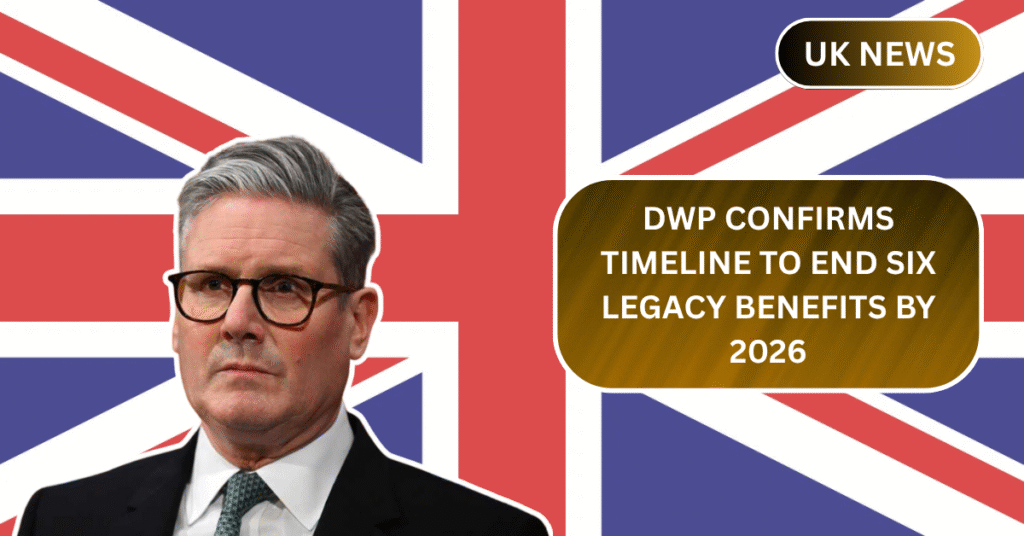The Department for Work and Pensions (DWP) has confirmed that six existing benefits will be phased out by 2026 as part of a nationwide move to Universal Credit. This major change will affect millions of people across the UK, many of whom depend on these payments for their day-to-day living.
The shift is part of a wider government plan to simplify the benefits system. However, the transition is raising concerns among benefit claimants, especially those who are unaware of how it might impact their finances.
Which Six Benefits Are Being Replaced?
This Article Includes
The six benefits being scrapped and replaced by Universal Credit are:
- Income-based Jobseeker’s Allowance (JSA)
- Income-related Employment and Support Allowance (ESA)
- Income Support
- Child Tax Credit
- Working Tax Credit
- Housing Benefit
These are often called “legacy benefits.” The DWP is gradually moving people off these benefits and onto Universal Credit, which combines several payments into one.
Why Is the DWP Making This Change?
The government believes that Universal Credit is a more efficient system. Instead of managing multiple separate benefits, people will receive a single monthly payment. This is meant to streamline the process, reduce administrative costs, and help ensure support reaches the right people.
But critics say this change may leave some households worse off—especially vulnerable groups like disabled people, single parents, and part-time workers.
How Will the Move Happen?
The DWP is using a process called ‘managed migration’ to move people from legacy benefits to Universal Credit. They send out a ‘Migration Notice’ to claimants telling them they have three months to apply for Universal Credit.
If they don’t apply within this period, their existing benefits will stop, and they may face a break in payments.
As of now, the DWP has already sent out over 500,000 notices and aims to complete the migration for all claimants by the end of 2025, with final transitions wrapping up in early 2026.
Who Will Be Affected the Most?
People on Tax Credits are likely to be the largest group affected, followed by those on ESA and Housing Benefit. Many of them may not realise that their current benefits are ending, which could lead to sudden income loss.
There’s also concern for older claimants who aren’t familiar with online applications or those with mental health issues who may struggle with the process.
Is There Any Support During the Switch?
Yes. To help with the transition, the DWP is offering something called ‘Transitional Protection’. This means that if your Universal Credit payment would be lower than your old benefits, the government may top it up temporarily so you don’t lose money immediately.
However, this protection isn’t permanent—it reduces over time and could stop if your circumstances change, like if you get a new job or your income goes up.
What Should You Do Now?
If you’re currently receiving any of the six benefits listed, here’s what you need to do:
- Keep an eye on your post for any Migration Notice from DWP
- Once you get the notice, apply for Universal Credit within three months
- Use the government’s official website to understand how much you could get
- If you’re unsure, contact a local welfare advisor or Citizens Advice to help guide you through the process
Final Words
While the DWP says the move to Universal Credit will benefit most claimants, many still feel nervous about what’s coming. With millions set to be affected, it’s more important than ever to stay informed and take action as soon as possible.




